< Visited in Jul 2019 >
Taiwan as a tea kingdom needs no introduction. As a frequent tea (and coffee) drinker, though not a connoisseur at all, my Taiwan travels have greatly exposed me to varied flavours, creative concoctions and increasingly, a thirst for related sights and knowledge. My attention was drawn to a label called Taiwan BlueMagpie Tea 台湾蓝鹊茶, having bought their tea sachets from a distributor retailer before, and seeing the work they do in the tea mountains of Pinglin through their FB. About an hour's drive from Taipei Main Station, Pinglin 坪林 was good (and new) news to me, as it means an opportunity to explore a tea town without having to travel hours all the way into the central mountains. (The other alternative in Taipei would be Maokong 猫空, which I enjoy in other ways but personally consider more touristy.)

Needless to say, I went about planning my Pinglin day trip 坪林一日游, in the course of it, discovering BY-TeaMaster 白青长茶作坊.
Saw them on some Taiwanese family trip's blog, and their FB gave me the impression that they are a typical tea plantation, open to the public for tours. (I correct my initial impression later.) Contacting them through FB's private messaging (which remained our mode of contact), I enquired about whether there was opportunity for public viewing on my required day, for one person (assuming there could be organised group tours on selected days). Fairly quickly, we fixed a date, with the plan being for me to get to Pinglin by bus, upon which they will pick me up for my 3-hour visit, send me back to the old street, and it would cost NTD600. Sounds pretty straightforward and fitted nicely into my 1 day trip :-)
Meeting the host at 10am at Pinglin bus terminal, I was greeted by a young man who drove over and introduced his surname as Bai 白. The family name of the business, I assumed he must be a family member or relative of the owner. (Actually, it occurred to me later that their FB had featured his brother and him, when they went overseas to collect an award for their tea.) This was the younger of the two brothers, currently running the family business together with their dad.
Contrary to my assumption, it was not a (small) group tour but a one-on-one, which I gladly welcomed. There was already another small group at the premises having their "tour". Side note:
- The Bai family does not run group/tours as a primary source of income or activity. The tea plantation is operated daily by the family members, and only when time and manpower permit, would they accede to visit requests. (I felt thankful I got a slot.)
- The 3-hours mentioned include what this post covers, and I genuinely consider the "fee" of NTD600 to be a token sum, covering transport, the tea tasting experience and for their manhours. What I had gained was way more than what I paid monetarily, touching and inspiring me greatly even now.
- Subject to schedule, the 2 brothers manage the private tour aspect, and recommend small groups of ideally not more than 5 pax. Best to enquire politely first and discuss your plans with them, if you are considering a similar excursion.
About a 20-minute scenic drive uphill (kudos to Bai's driving skills navigating narrow winding roads, possibly mastered with frequency), we were at a pavilion offering a good view of the mountains. Bai showed me photos of a sea of clouds taken early that morning from the same spot - I could only envy what it was like to be able to experience such stunning scenary on a daily basis. Even for city dwellers in Taipei, Pinglin was a mere hour's drive.


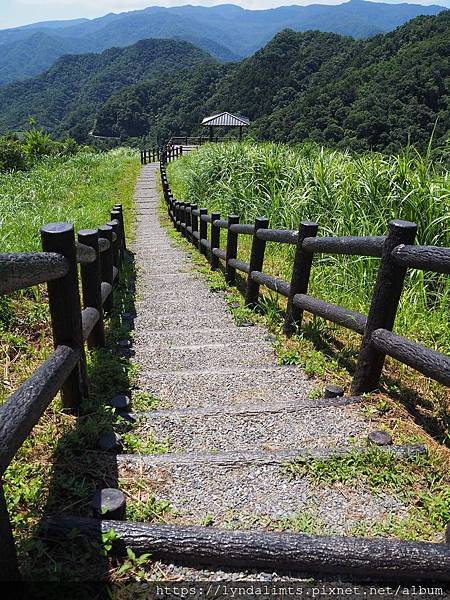

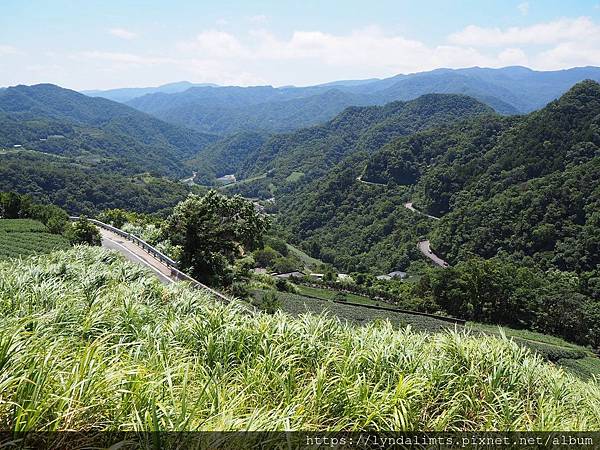




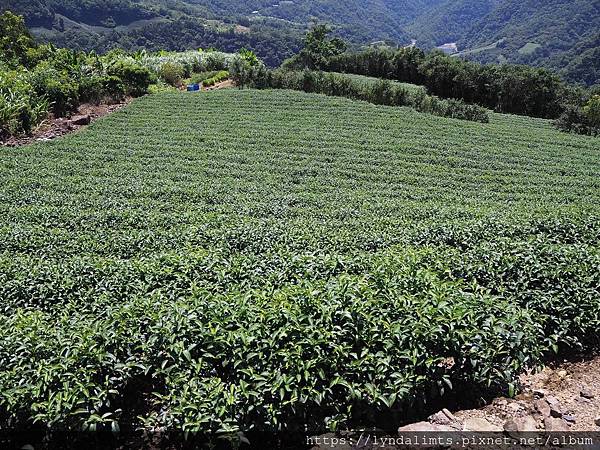

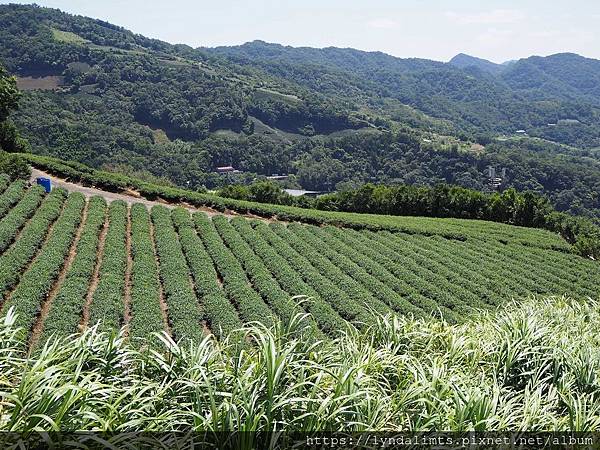
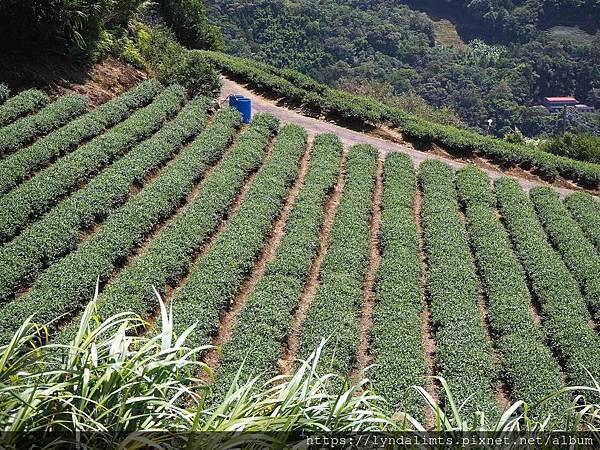
A stray cat welcomed us - possibly deserted here, but hopefully gets fed by visitors who come up frequently enough, as the pavilion is a popular photography spot.

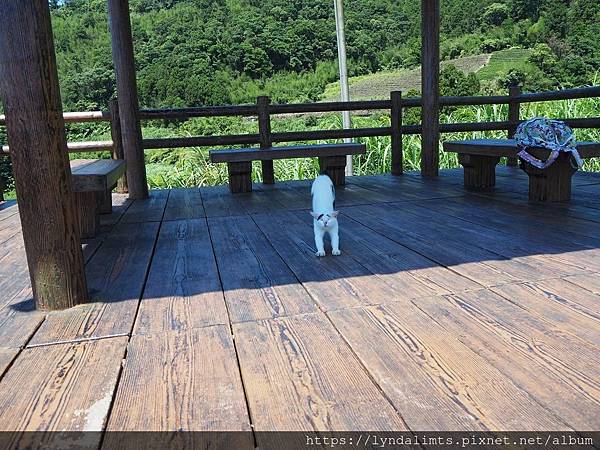


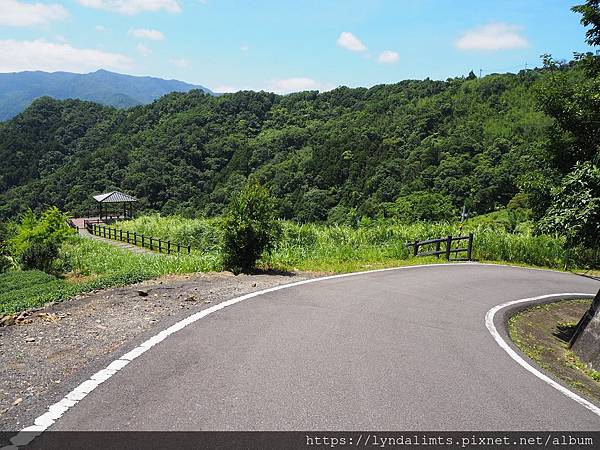

After the photo pit-stop, it was another short winding drive to Bai's tea plantation and residence. I didn't manage to capture the plantation front this time - but unlike commercial plantations opened to the public for visiting, with large carparks and prominent facade signages, BY-TeaMaster looked nowhere like those. A humble looking low-rise (2-storey?) house was where they ran their business, part of which was a small factory, and another part resembling a large living room (with a simple office) where we sat down and chatted over tea.
A few steps from the house sat the tea plantation. Bai brought me down some (uneven) stone steps to show me the tea leaves up-close. Pinglin specialises in Pouchong tea (包bao1 種zhong3 茶). Off Wikipedia, there are only two areas that produce this - Pinglin being one of them. Somewhere between green and oolong tea, its name stems from how the tea leaves are wrapped during the drying process, and the tea emits a floral and fruity fragrance (花果香). (In another blog on COFE bar 喫咖啡吧 at Dihua Street, they have tea-chocolate flavoured by Pinglin's Pouchong tea too.)


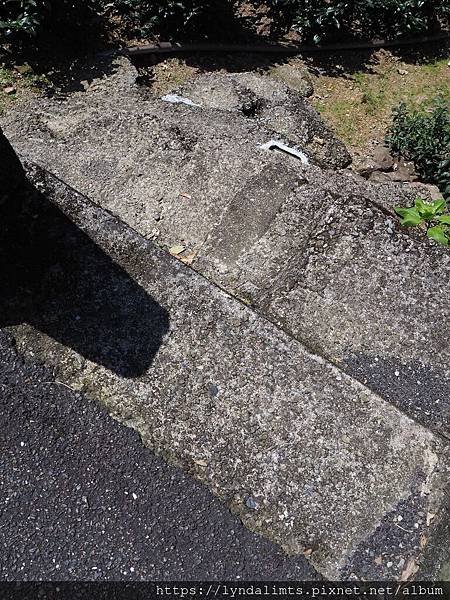



The trees are kept short for ease of harvesting, particularly in Pinglin where most plantations are operated by families and lack the manpower in the larger tea growing zones of say Alishan. Off the web, it seems that ridding the older and more "bitter" leaves at the top of trees also allowed retaining the younger and "milder" flavours. (I stand corrected.)


⇩ Bai enlightened me that tea leaves "bitten by" bugs are actually the best, as the bugs' secretion enhances the flavour of the leaves. Guess nature has its best arrangements.

⇩ A lone standing Assam 阿萨姆 tree - the only one left in an experimental row.


After a short but enlightening introduction by Bai (this guy knows his stuff man) at a section of their plantation, we went indoors to the factory. Little did I know that this was a fantastic prelude to my visit to Pinglin Tea Museum 坪林茶业博物馆, as I saw the same processes and tools - seeing them first in an actual operational environment was surely more informative.
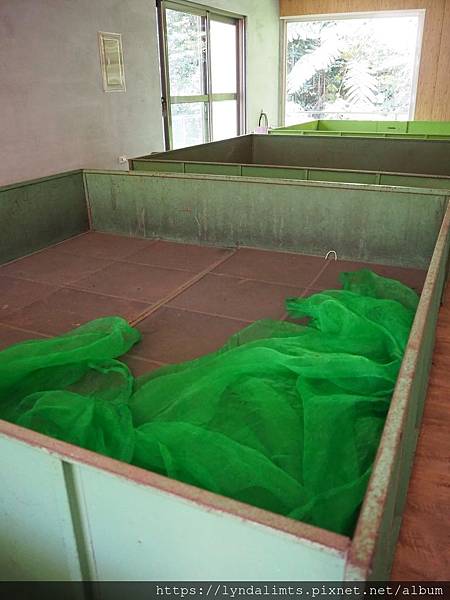

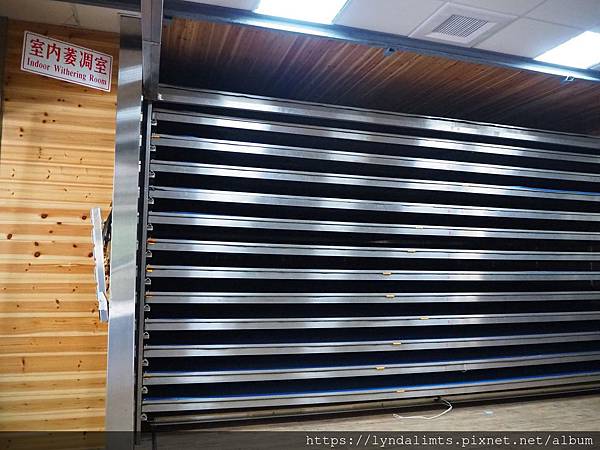
⇩ The inclusion of QR codes was a brilliant touch, I felt, for people to watch the processes online.
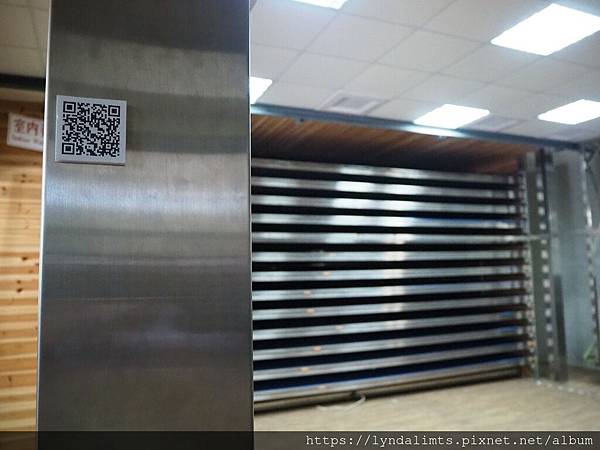
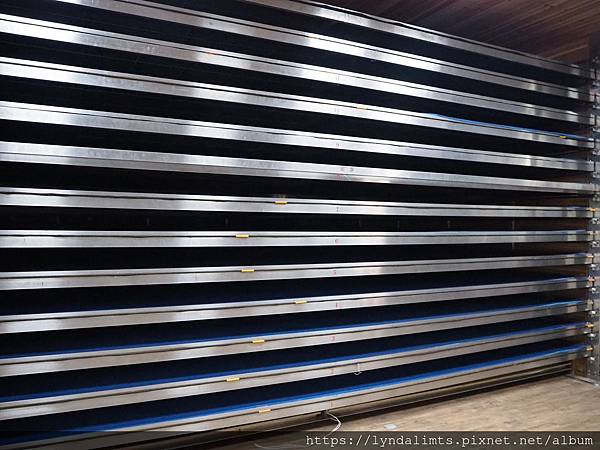


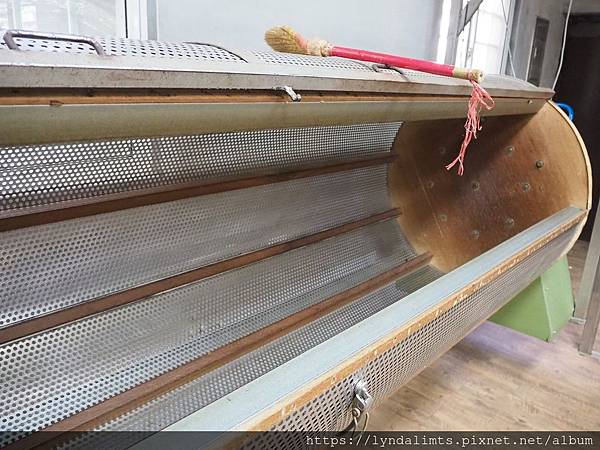

Bai shared that the family members had a duty roster, and everyday starts even before 7am as there was a schedule to run the processes. I can only imagine the self-discipline required to run such a business, and marvel at the determination of the two brothers who decided to ditch the citylife to return to their hometown and family business (earlier). If not for their decision, I would have one less meaningful destination to experience.




⇩ The only photo I have of Bai, though you can spot him and his brother on their official FB :-)
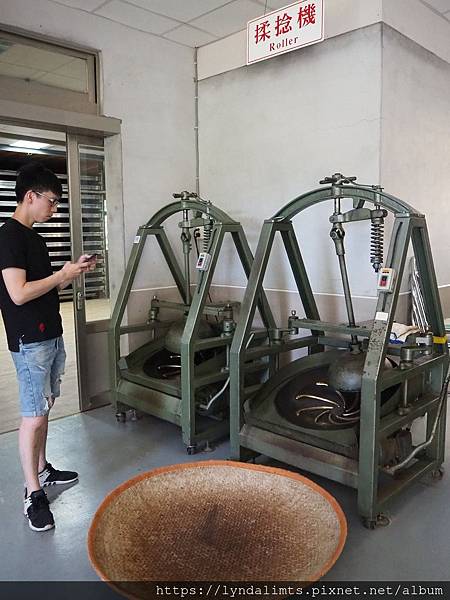




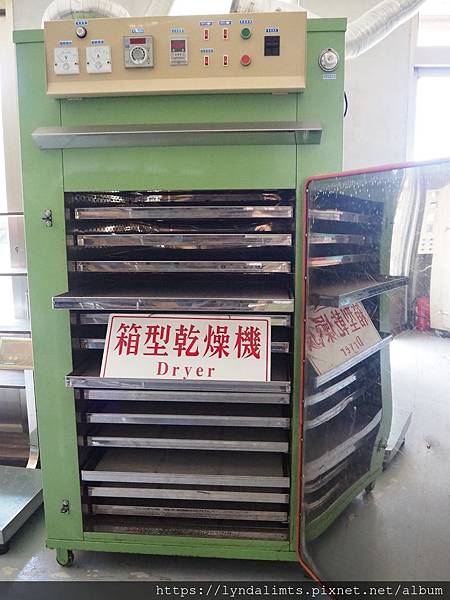



Finally settling down at their large reception area...
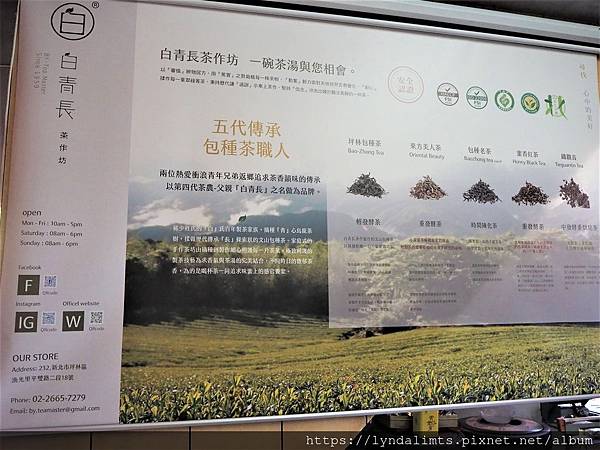

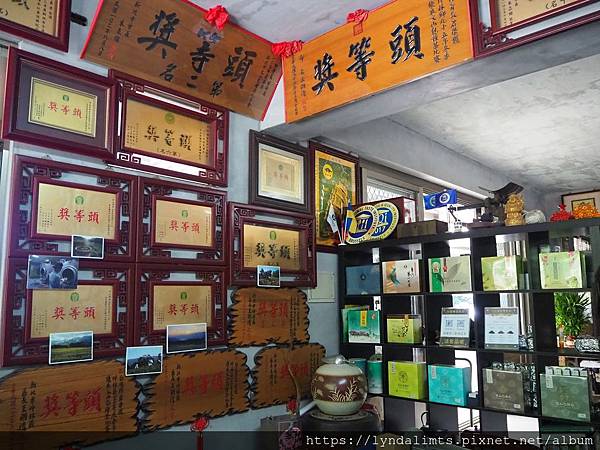
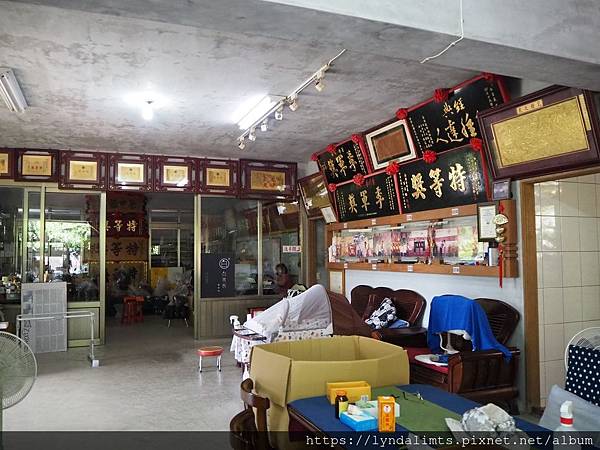
⇧ If you think awards are part and parcel of any respectable operator in this trade, the 2 brothers are definitely not letting up in claiming awards even overseas - including a taste award in Belgium in 2018. Besides working hard to breathe new life into the family business, the 2 brothers have also welcomed their respective babies! :-) I was again impressed and surprised by how the younger generation (especially their spouses who may not have grown up with traditional businesses back in the outskirts) would leave behind the comforts and convenience of city life, not only to carry on family responsiblities, but to actually put heart and soul into reinventing their brand. I strongly believe Taiwanese are a lot more resilient and hardy than the folks in my home country.
The anticipated tea tasting experience, over a comfortable conversation like friends. This is probably harder to achieve in a large tour/group, so I enjoyed the privilege of my one-on-one arrangement (especially when I had enough questions to ask and prefer not to make a fool out of myself with my ignorance in the presence of a large group). Side note: recommended to come with a half-full tummy (absolutely not on an empty stomach).

⇩ Starting with the mildest Pouchong 包種. Bai prepared tea with finesse and familiarity - sharing insights on the leaves, flavours and preparation as we went along. Despite being no tea expert, I found it interesting to listen to his sharing, alongside nuggets of how the brothers handled challenges including convincing their dad of new ideas and introducing new partners to the originally conservative local operators.

⇩ Bai Mao Hou 白毛猴, literally translated as "white fur monkey" for the furry white on the leaves. The flavour and colour were moving up the scale.

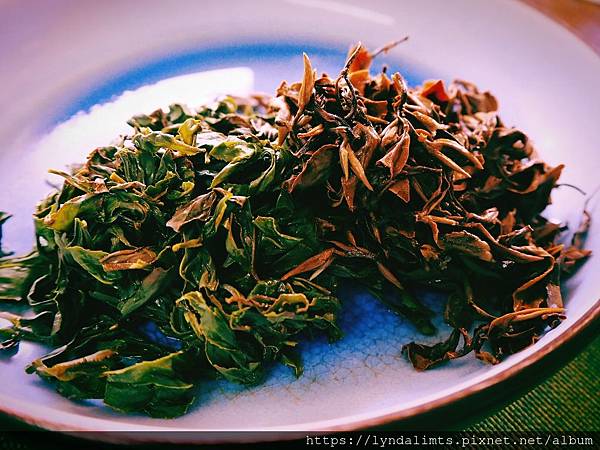
⇩ A stronger Bai Mao Hou 白毛猴



⇩ Jinxuan Oolong 金萱乌龙 - surprisingly robust as ashamedly, even though this was 1 of my favourite tea, I usually taste it from milk tea shops or as tea sachets.

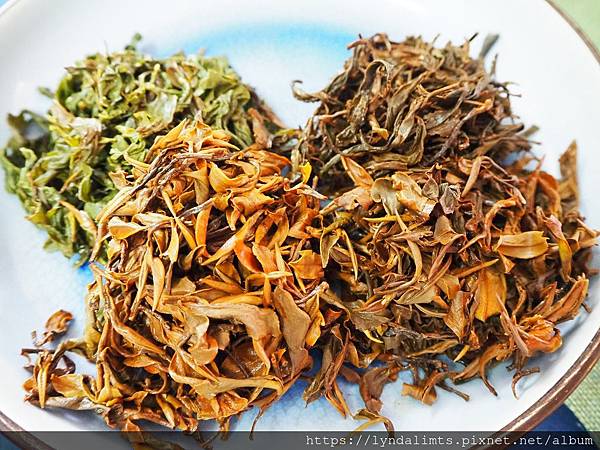
⇩ Honey fragrance black tea 蜜香红茶. This is another common flavour I buy in sachets.
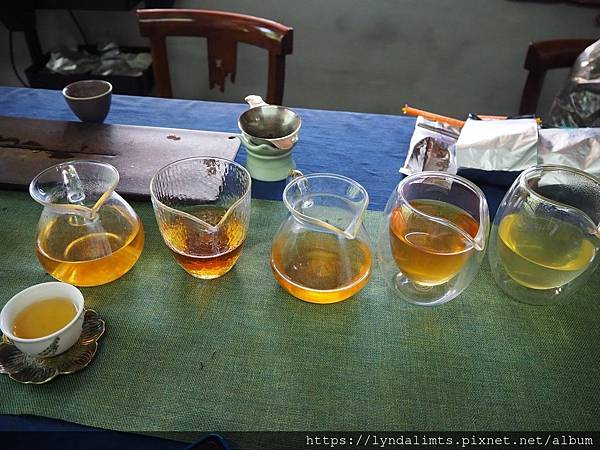

⇩ Learning that I am well-disposed towards stronger flavours, Bai generously offered a taste of their family's (limited!) half-century old Pouchong. Having been passed on (or re-purchased from buyers) through the generations, there is only so much left to appreciate (gasp!). Resembling the richer taste of Pu'er 普洱, with a tinge of ginseng for tea THIS old (apparently the 20-30 years old type carries a tinge of plum).
This is also when I learnt that only older tea requires the first brew to be discarded - contrary to what I had assumed of chinese tea brewing. This is because of the olden days' preparation (which likely involved some bare feet stepping) vs the modern day's use of machinery, as well as the fact that these tea leaves have been stored for a very, very long time. In the very least, the first brew also helps the packaged tea ball to "bloom" first and allows its flavour and fragrance to be emitted in the second brew for consumption.
(Referencing a price chart I saw later that day, old Pouchong sells for about NTD2400 for 600grams (subject to grade). I didn't dare ask about the price of the very robust flavour I was relishing.)
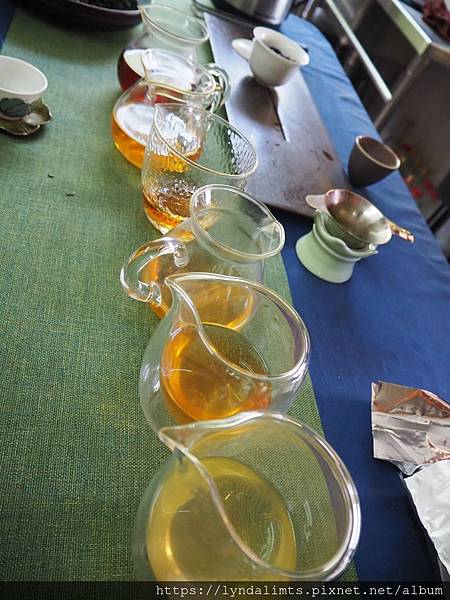
I like the term that Bai introduced me - 茶醉, literally translating to getting drunk on tea. It must be absolutely worth it getting drunk on good tea, and good company.
In less than 3 hours (ending up paying a fee of NTD400, as the brothers generously took into account we didn't accomplish 3 full hours, though I didn't mind at all), I gained so much insights and newfound interest in tea. Not to mention feeling in awe and inspired by what these 2 brothers (and many young Taiwanese) are committing to their craft. I hope to be back someday, perhaps with friends who will enjoy the experience as much as I did.

Check out my entire Pinglin Day Trip here:
[Taipei 新北] ☼ Pinglin Day Trip 坪林一日游 ☼
======================
BY-TeaMaster 白青长茶作坊
FB | Web
Address --- No. 18 Pingshuang Road Section 2, Pinglin District, New Taipei City 新北市, 坪林区, 坪双路二段18号



 留言列表
留言列表 {{ article.title }}
{{ article.title }}